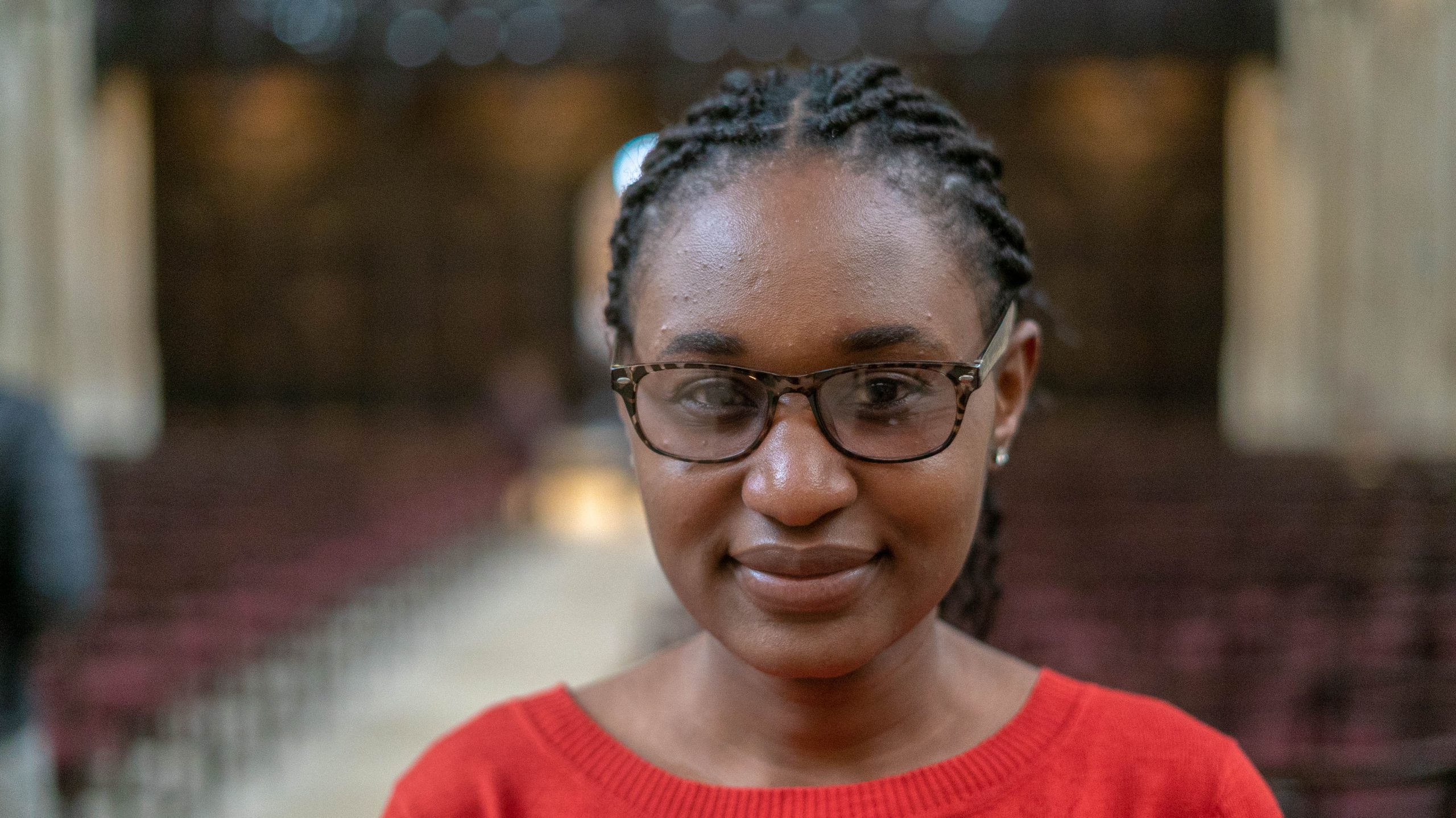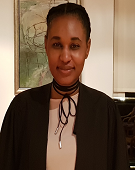
Sandile Mtetwa talks about her research on alternative energy and her community project to empower young women.
Some of the energy in rural communities is very toxic to human health. I wanted to focus on providing alternative means of getting clean energy which were not hugely expensive.
Sandile Mtetwa
Sandile Mtetwa wants to transform the energy sector in her country. Her PhD in Chemistry, which she will begin in the autumn, will investigate alternative energy sources which can produce and store hydrogen and could give Zimbabwe access to cost effective solar energy.
Her interest in clean energy was ignited during her undergraduate studies which took place at a time of frequent power cuts in Zimbabwe. “Some of the energy in rural communities is very toxic to human health. I wanted to focus on providing alternative means of getting clean energy which were not hugely expensive,” she says.
Sandile’s PhD builds on her MPhil, for which she also received a Gates Cambridge Scholarship.
Working at the nanoparticle level, Sandile’s research aims to create nanoparticle support-based composites with metal-organic frameworks to boost the lifetime of photo active materials and so increase power generation.
When she first applied to Cambridge she had planned to investigate using the metal-organic framework ZIF-67 to produce and store hydrogen. However, her supervisor said that it had a lot of problems associated with it which made it less efficient. He proposed using ZIF-8 instead which others in the research group were using. It is a more efficient, more stable material.
For her PhD she will use ZIF-8 in monolith form which she says will enhance its ability to perform any application.
While hydrogen energy is currently quite expensive, Sandile hopes that with more research costs will come down. She adds that a major hurdle to adoption of alternative energy which needs to be overcome is the vested interests of many in government and policy making in the fossil fuel industry. Since she has been at Cambridge, where she is based at Peterhouse College, Sandile has become active in African politics, she hosts the University’s African Society Africa over coffee monthly discussions on topical subjects. Since its launch in November she has hosted five sessions, ranging from the legacy of Winnie Mandela to the Libyan slave trade. She has also taken part in events at Cambridge to encourage more girls to take STEM subjects.
Empowering young women
In addition, Sandile runs the non-profit she set up as an undergraduate at the University of Zimbabwe. The Simuka-Arise Initiative is a university-based community project which works to empower young women. The organisation also works with young men who are encouraged to come along and discuss issues and join in campaigns and awareness-raising sessions.
It has three main strands: economic, social and academic empowerment of young women and partners with other organisations to ensure it has a greater impact. Women and children are either referred to the organisation or come through word of mouth and are offered financial, practical and educational support.
Sandile set up the organisation as a result of her experience as a single parent. She fell pregnant before she started university. At the time she was about to start a veterinary science course, but realised it was not what she wanted to study and that she preferred research into potential treatments to the world of hands-on medicine. She took a gap year and began working as a teacher in a local high school to support her daughter before returning to university to do a chemistry degree.
Sandile lived at home during this time and received a lot of support from her parents for which she is very grateful. She faced a lot of abuse and violence from her daughter’s father and as a result of that she met other young women in similar situations. “They were going through the same things, but unfortunately they didn’t have the support system I had,” she says. “They had no-one to turn to. I realised I wanted to provide that support system.”
While she has been at Cambridge, Sandile has focused mainly on strategic issues at Simuka-Arise, such as fundraising. She was recently invited to receive a Tuwezeshe Fellowship in London to raise awareness about gender-based violence in Zimbabwe. The Fellowship is sponsored by Comic Relief.
She admits that it can be hard working on building her non profit so far from home. She is in regular contact with the organisation in Zimbabwe through social media and coaches volunteers remotely. She remains ambitious about its future and wants to continue to build it so she is making use of her time at Cambridge to get advice and support from organisations which support social enterprises and start-up companies.
She plans to visit Zimbabwe later in the year for the first time since she started her MPhil. She is very much looking forward to seeing her family and in particular her daughter, now aged six, who she has kept in touch with through Skype and Whatsapp.

Sandile Mtetwa
- Alumni
- Zimbabwe
- 2017 MPhil Chemistry
2018 PhD Chemistry - Lucy Cavendish College
As a research scientist in Chemistry it is my desire that in a few years, the world population that currently does not have access to clean energy will be streamed down noticeably. My PHD work aims to contribute to that goal.I believe that several renewable resources should be utilized to ensure the adequate distribution of energy around the globe and solar-driven hydrogen is one of the solutions. An efficient and cost-effective way for harnessing sunlight and driving the evolution of hydrogen is critical to achieving a hydrogen economy soon. My work will be focused on a metal-organic framework (MOF)-based hybrid system that is tailormade for long charge carrier lifetime. This I will do by synthesizing: a suitable organic linker; as the photosensitizer, a robust and inexpensive semiconductor and exploring the optimum co-catalyst loading for effective reduction of hydrogen ions to molecular hydrogen. I will also consider the subsequent storage of hydrogen after its evolution by the same system. Having been a Gates Scholar during my MPhil I became privy to a wide range of opportunities and I met a wonderful network of scholars who are so passionate about their individual areas of study and are always motivated to do better. I am so honored to continue to be part of a community that continuously works towards improving peoples' lives in different parts of the world.
Previous Education
University of Zimbabwe
University of Cambridge












